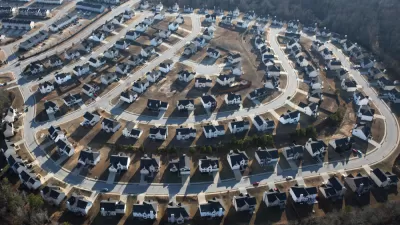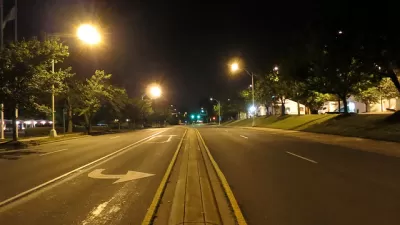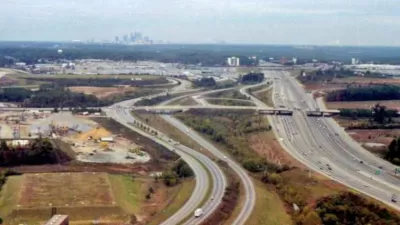A new study that examines the contributing and enabling factors that led to high foreclosure rates, neighborhood decline, and disparate impacts on low-income populations in the subdivision of Windy Ridge, near Charlotte, North Carolina.
A new research paper by Janni Sorensen, Jose Gamez, and Melissa Curie examines the development process of Windy Ridge, a subdivision in Charlotte, North Carolina. The study, called “Windy Ridge: A neighborhood built to fail” will be published in the July 2014 edition of Applied Geography.
According to the paper’s abstract, “[the] development was aided by a city as growth machine environment that failed this and other neighborhoods through the lapse of proper planning oversight.”
Windy Ridge was the poster child for suburban decay in 2008—called a “slumburb” and more by multiple national publications.
FULL STORY: Windy Ridge: A neighborhood built to fail

Maui's Vacation Rental Debate Turns Ugly
Verbal attacks, misinformation campaigns and fistfights plague a high-stakes debate to convert thousands of vacation rentals into long-term housing.

Planetizen Federal Action Tracker
A weekly monitor of how Trump’s orders and actions are impacting planners and planning in America.

San Francisco Suspends Traffic Calming Amidst Record Deaths
Citing “a challenging fiscal landscape,” the city will cease the program on the heels of 42 traffic deaths, including 24 pedestrians.

Defunct Pittsburgh Power Plant to Become Residential Tower
A decommissioned steam heat plant will be redeveloped into almost 100 affordable housing units.

Trump Prompts Restructuring of Transportation Research Board in “Unprecedented Overreach”
The TRB has eliminated more than half of its committees including those focused on climate, equity, and cities.

Amtrak Rolls Out New Orleans to Alabama “Mardi Gras” Train
The new service will operate morning and evening departures between Mobile and New Orleans.
Urban Design for Planners 1: Software Tools
This six-course series explores essential urban design concepts using open source software and equips planners with the tools they need to participate fully in the urban design process.
Planning for Universal Design
Learn the tools for implementing Universal Design in planning regulations.
Heyer Gruel & Associates PA
JM Goldson LLC
Custer County Colorado
City of Camden Redevelopment Agency
City of Astoria
Transportation Research & Education Center (TREC) at Portland State University
Jefferson Parish Government
Camden Redevelopment Agency
City of Claremont





























